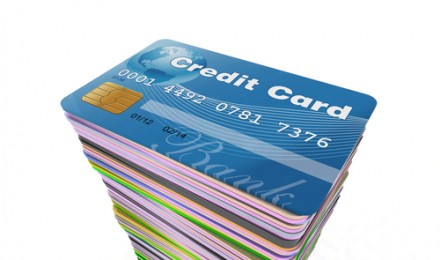On December 7, 2011 the Consumer Financial Protection Bureau (CFPB) announced that the way credit card agreements are laid out and presented to the consumer will be changing. The third phase of the Know Before You Owe campaign is directed at simplifying the agreements credit card users must sign. The card issuers must be more transparent with their new agreements, showing all the terms and conditions in an easy to read format.
The CFPB started in 2010 and is dedicated to a more open government. By making financial matters easier to understand, the CFPB aims to give more power to the consumer rather than big corporations. The Bureau recently launched a three part series that started with Mortgages, moved on to student loans, and is now giving the power to consumers with credit cards.
The US population is estimated at about 300 million residents. There are currently over 500 million credit cards in use, the debt on those cards is over $700 Billion, or roughly the same amount as President Obama’s initial stimulus package. The goal of the Know Before You Owe campaign is to help reduce this amount by informing consumers what they are getting into before they start using a credit card.
In order to increase consumer knowledge when it comes to credit cards, there are several changes being considered. Credit card agreements are long and difficult to read. They currently average around 5,000 words, much of which is legal jargon hard to decipher by most credit card users. Buried in this jargon are the key terms, interest rates, and other important information that the consumer should know. Unfortunately the agreements are written in a way that causes the consumer to pass over it all, and just sign on the line. The new agreements will have all the important information on the first page in an easy-to-read format, and be nearly 5 times shorter with an average word count of 1,100 words. See the simplified prototype for what it may look like in the future.
One of the worst feelings is the one that hits when you know that you have been scammed. Even worse is when the person or company that tricked you did it legally. While the companies issuing the credit cards most likely did not set out to trick their customers, the end result was many felt cheated. For those who feel they have been cheated, the CFPB has an easy to use credit card complaint feature. With the new credit card regulations, this feature will hopefully go unused, but until the new agreements start to roll out, you can preview the new agreements, and give feedback to the CFPB here.
On December 7, 2011 the Consumer Financial Protection Bureau (CFPB) announced that the way credit card agreements are laid out and presented to the consumer will be changing. The third phase of the Know Before You Owe campaign is directed at simplifying the agreements credit card users must sign. The card issuers must be more transparent with their new agreements, showing all the terms and conditions in an easy to read format.
The CFPB started in 2010 and is dedicated to a more open government. By making financial matters easier to understand, the CFPB aims to give more power to the consumer rather than big corporations. The Bureau recently launched a three part series that started with Mortgages, moved on to student loans, and is now giving the power to consumers with credit cards.
The US population is estimated at about 300 million residents. There are currently over 500 million credit cards in use, the debt on those cards is over $700 Billion, or roughly the same amount as President Obama’s initial stimulus package. The goal of the Know Before You Owe campaign is to help reduce this amount by informing consumers what they are getting into before they start using a credit card.
In order to increase consumer knowledge when it comes to credit cards, there are several changes being considered. Credit card agreements are long and difficult to read. They currently average around 5,000 words, much of which is legal jargon hard to decipher by most credit card users. Buried in this jargon are the key terms, interest rates, and other important information that the consumer should know. Unfortunately the agreements are written in a way that causes the consumer to pass over it all, and just sign on the line. The new agreements will have all the important information on the first page in an easy-to-read format, and be nearly 5 times shorter with an average word count of 1,100 words. See the simplified prototype for what it may look like in the future.
One of the worst feelings is the one that hits when you know that you have been scammed. Even worse is when the person or company that tricked you did it legally. While the companies issuing the credit cards most likely did not set out to trick their customers, the end result was many felt cheated. For those who feel they have been cheated, the CFPB has an easy to use credit card complaint feature. With the new credit card regulations, this feature will hopefully go unused, but until the new agreements start to roll out, you can preview the new agreements, and give feedback to the CFPB here.







